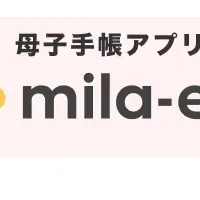
ARMO's Kubescape Hits New Heights with CNCF Incubation Status for Kubernetes Security
Kubescape Achieves a Significant Milestone
The journey of ARMO's Kubescape has taken a remarkable turn as it has recently been promoted to incubation status by the Cloud Native Computing Foundation (CNCF). This change signifies a growing recognition of Kubescape's role and its escalating adoption within the realms of cloud-native security and DevOps. Originally integrated into the CNCF Sandbox in 2022, Kubescape stands out as an open-source project designed to bolster security within cloud and Kubernetes environments. Its functionalities include risk analysis, threat detection, vulnerability scanning, and ensuring compliance with security standards.
Since its launch in late 2021, Kubescape has experienced impressive growth, finding its way into the infrastructure of numerous sizable organizations, such as Intel, AWS, and Bitnami. The growing user base, now exceeding 25,000 companies globally, reflects its significance in the cloud security domain. It has amassed over 10,400 stars on GitHub, demonstrating a robust involvement from developers worldwide. This user engagement emphasizes the tool's utility and reliability as a crucial asset for enterprises striving to secure their cloud-native applications.
According to Shauli Rozen, the CEO and co-founder of ARMO, attaining incubation status is a testament to the dedication of its maintainers and the overwhelming support from the Kubescape community. Rozen expressed, "This promotion reflects its increasing adoption and the critical role it plays in securing cloud native environments across the globe."
Adding to this sentiment, Ben Hirschberg, ARMO's CTO and co-founder, highlighted the project’s journey from informal discussions to a widely recognized tool. "For the past three years, we've engaged with adopters across organizations of all sizes — from cybersecurity and telecommunications to financial services and e-commerce. The scale of adoption has validated our vision. It’s remarkable to see how an informal conversation between friends over coffee has evolved into something that delivers substantial value to organizations worldwide," he stated.
The importance of such projects cannot be overstated. Kubescape provides users with a comprehensive suite of security capabilities that extend beyond mere vulnerability scanning to encompass all security considerations within Kubernetes environments. Emily Fox, a Portfolio Security Architect at Red Hat, recognized the importance of Kubescape's promotion to incubation status and its implications for future users. She remarked that Kubescape is positioned to gain widespread traction, appealing to diverse contributors and setting the stage for future successes.
Furthermore, the Kubescape project incorporates essential security tools and frameworks, validating its relevance as organizations continuously seek solutions addressing various security concerns. This transition marks an evolution in cloud-native project maturity, aligning with the CNCF's commitment to fostering projects that focus on an array of security considerations.
As recognized by the CNCF, initiatives like Kubescape are pivotal in the ongoing effort to enhance cloud native security. With this new incubation status, Kubescape now has an opportunity to further refine its capabilities while remaining aligned with user needs in securing their cloud environments. The positive reception and endorsement from industry leaders amplify its potential impact and roles across various sectors.
In conclusion, as Kubescape moves forward following its promotion to incubation, it serves as an exemplary model of how collaborative efforts in open-source projects enable companies to harness advanced security tools to protect their digital infrastructures effectively. ARMO's commitment to continuous development ensures that Kubescape will remain a staple in cloud security, possibly guiding other projects toward similar successes in the future.
Topics Consumer Technology)










【About Using Articles】
You can freely use the title and article content by linking to the page where the article is posted.
※ Images cannot be used.
【About Links】
Links are free to use.